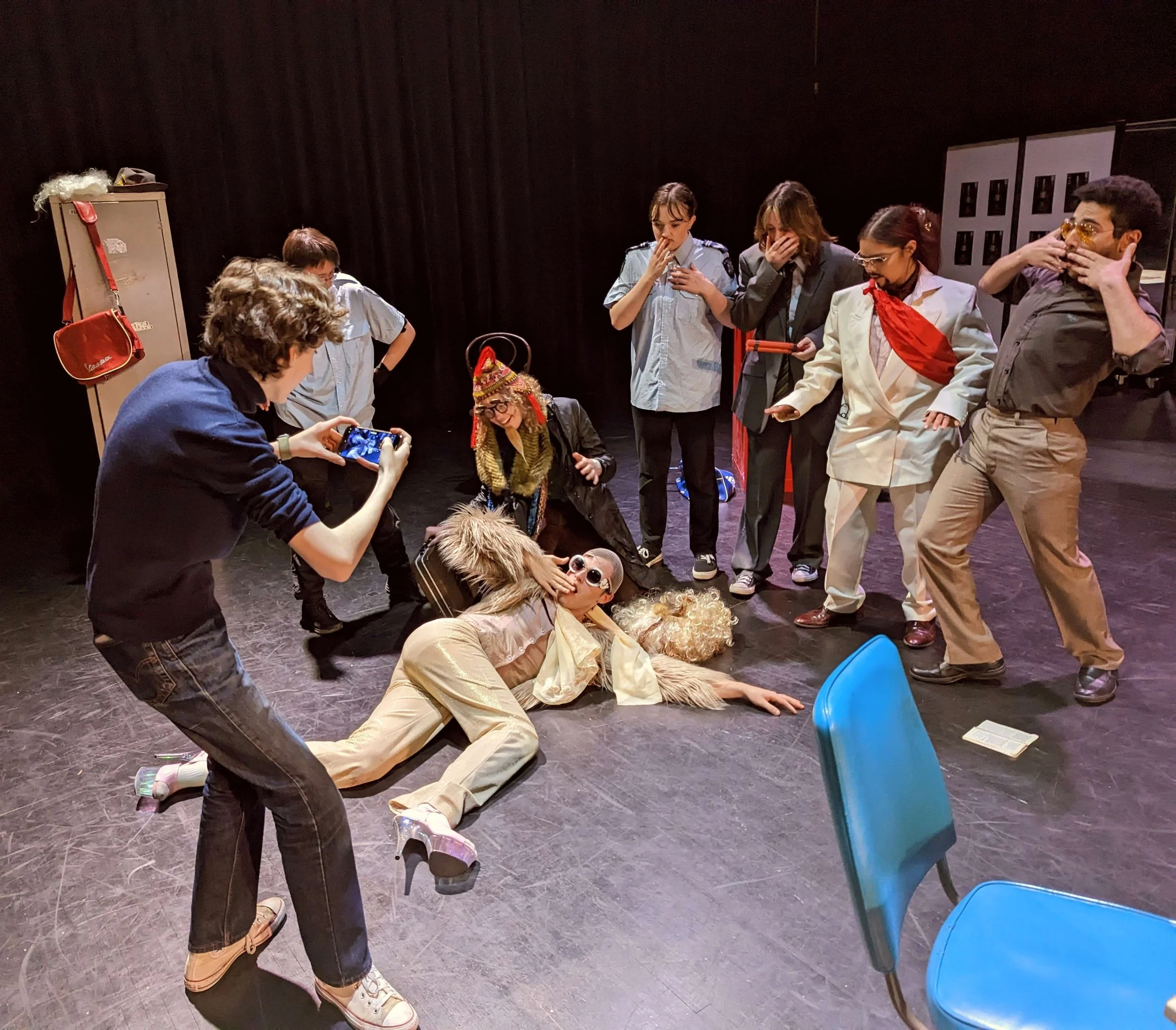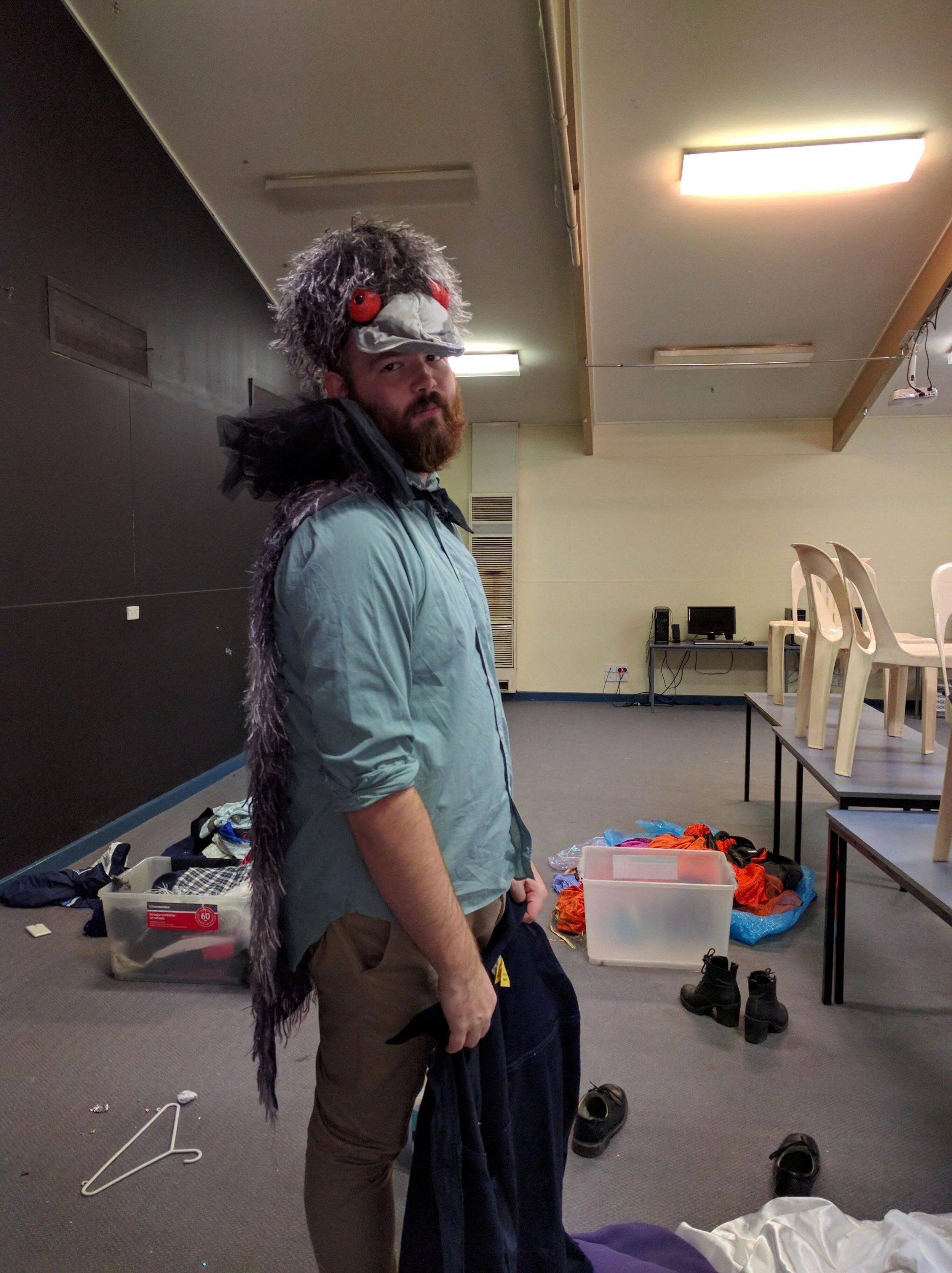Theatre Studies
Units 1-4 (unit 1-2 offered at tc in 2025)
In VCE Theatre Studies students interpret scripts from the pre-modern era to the present day and produce theatre for audiences. Through practical and theoretical engagement with scripts they gain an insight into the origins and development of theatre and the influences of theatre on cultures and societies. Students apply dramaturgy and work in the production roles of actor, director and designer, developing an understanding and appreciation of the role and place of theatre practitioners.
Throughout the study, students work individually and collaboratively in various production roles to creatively and imaginatively interpret scripts and to plan, develop and present productions. Students study the contexts – the times, places and cultures – of these scripts, as well as their language. They experiment with different possibilities for interpreting scripts and apply ideas and concepts in performance to an audience. They examine ways that meaning can be constructed and conveyed through theatre performance. Students consider their audiences and in their interpretations incorporate knowledge and understanding of audience culture, demographic and sensibilities.
Students learn about innovations in theatre production across different times and places and apply this knowledge to their work. Through the study of plays and theatre styles, and by working in production roles to interpret scripts, students develop knowledge and understanding of theatre, its conventions and the elements of theatre composition. Students analyse and evaluate the production of professional theatre performances and consider the relationship to their own theatre production work. Students learn about and demonstrate an understanding of safe, ethical, and responsible personal and interpersonal practices in theatre production.
Aims
This study enables students to:
acquire knowledge of theatre including its styles, purposes and audiences • interpret scripts through engagement in the production process
experiment creatively and imaginatively with theatrical possibilities and elements of theatre composition
apply knowledge of production roles and the skills to interpret scripts
understand themselves as theatre practitioners and audience
appreciate theatre and its significance as an art form
apply safe and ethical personal and interpersonal practices in theatre production
conduct performance analysis and production evaluations and apply learning to their own theatre production work
apply thinking, problem-solving and communication skills to creatively participate in the theatre life of their community
Structure
The study is made up of four units.
Unit 2: Modern theatre styles and conventions
Unit 3: Producing theatre
Unit 4: Presenting an interpretation
Unit 1: Pre-modern theatre styles and conventions
This unit focuses on the application of acting, direction and design in relation to theatre styles from the pre-modern era, that is, works prior to the 1920s. Students creatively and imaginatively work in production roles with scripts from the pre-modern era of theatre, focusing on at least three distinct theatre styles and their conventions. They study innovations in theatre production in the pre-modern era and apply this knowledge to their own works. Students develop knowledge and skills about theatre production processes including dramaturgy, planning, development and performance to an audience and apply this to their work.
Theatre styles from the pre-modern era of theatre include Ancient Greek, Ancient Roman, Liturgical drama such as morality/miracle/mystery plays, Commedia dell’Arte, Elizabethan, Restoration comedies and dramas, Neo-classical, Naturalism/Realism, Beijing Opera, Noh, Bunraku and Kabuki and other traditional indigenous theatre forms.
Students begin to develop skills of performance analysis and apply these to the analysis of a play in performance.
Unit 2: Modern theatre styles and conventions
This unit focuses on the application of acting, direction and design in relation to theatre styles from the modern era, that is, the 1920s to the present. Students creatively and imaginatively work in production roles with scripts from the modern era of theatre, focusing on at least three distinct theatre styles. They study innovations in theatre production in the modern era and apply this knowledge to their own works. Students develop knowledge and skills about theatre production processes including dramaturgy, planning, development and performance to an audience and apply this to their work. They study safe and ethical working practices in theatre production and develop skills of performance analysis, which they apply to the analysis of a play in performance.
Theatre styles from the modern era of theatre include Epic theatre, Constructivist theatre, Theatre of the Absurd, Political theatre, Feminist theatre, Expressionism, Eclectic theatre, Experimental theatre, Musical theatre, Physical theatre, Verbatim theatre, Theatre-in-education, and Immersive/Interactive theatre.
Unit 3: Producing theatre
In this unit students develop an interpretation of a script through the three stages of the theatre production process: planning, development and presentation. Students specialise in two production roles, working collaboratively, creatively and imaginatively to realise the production of a script. They use knowledge developed during this process to analyse and evaluate the ways work in production roles can be used to interpret script excerpts previously unstudied. Students develop knowledge and apply elements of theatre composition, and safe and ethical working practices in the theatre.
Students attend a performance selected from the prescribed VCE Theatre Studies Unit 3 Playlist and analyse and evaluate the interpretation of the script in the performance. The Playlist is published annually on the VCAA website.
Unit 4: Presenting an interpretation?
In this unit students study a scene and an associated monologue. They initially develop an interpretation of the prescribed scene. This work includes exploring theatrical possibilities and using dramaturgy across the three stages of the production process. Students then develop a creative and imaginative interpretation of the monologue that is embedded in the specified scene. To realise their interpretation, they work in production roles as an actor and director, or as a designer.
Students’ work for Areas of Study 1 and 2 is supported through analysis of a performance they attend. The performance must be selected from the VCE Theatre Studies Unit 4 Playlist. The Playlist is published annually on the VCAA website. Students analyse acting, direction and design and the use of theatre technologies, as appropriate to the production.
In conducting their work in Areas of Study 1 and 2, students develop knowledge in and apply safe and ethical theatre practices.
Assessment
Satisfactory Completion:
The award of satisfactory completion for a unit is based on a decision that the student has demonstrated achievement of the set of outcomes specified for the unit. This decision will be based on the teacher’s assessment of the student’s performance on assessment tasks designated for the unit.
Levels of Achievement
Units 1 and 2:
Procedures for the assessment of levels of achievement in Units 1 and 2 are a matter for school decision.
Units 3 and 4:
The Victorian Curriculum and Assessment Authority will supervise the assessment of all students undertaking Units 3 and 4. In VCE Theatre Studies, the students’ level of achievement will be determined by School-assessed Coursework (SACs) and end-of-year examinations.
Units 3 and 4 School-assessed Coursework: 45 %
End-of-year Production area examination: 25 %
End-of-year written examination: 30 %





